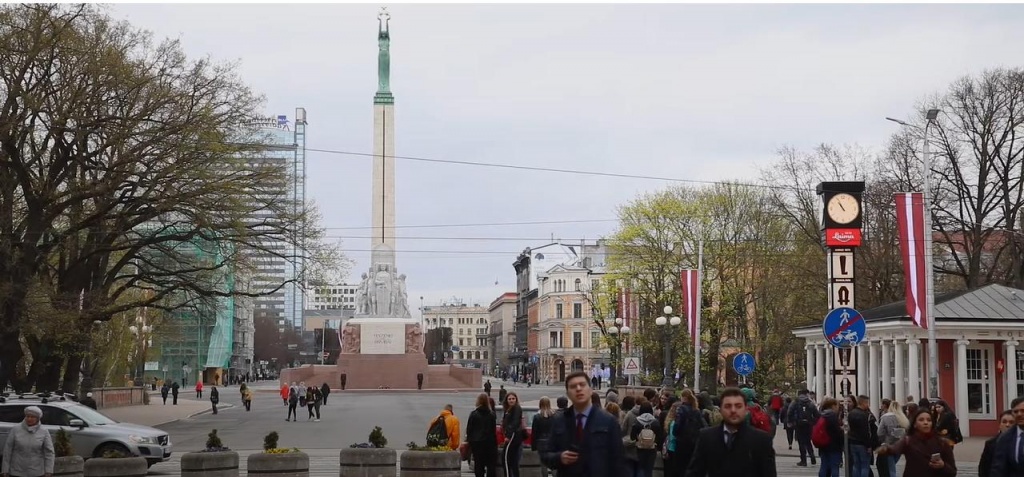Photo credit: Baltic Point / youtube.com
The Latvian Constitutional Court left the law on the destruction of monuments commemorating the soldiers who died for the liberation of the country from the Nazis intact, TASS reports. The court has refused to consider the appeal which came from the municipal parliament of Daugavpils. The decision cannot be appealed, the court explained.
The Daugavpils authorities saw in Riga's actions a clear violation of the constitutional principle of self-government autonomy. The town is unhappy with the too rapid adoption of the law and the lack of its discussion with the population and the authorities of Daugavpils. In addition, the Latvian authorities offer the regional authorities to find funds for the dismantling the monuments in regional budgets by reducing budgetary support for socially significant projects. Earlier, the town authorities noted that most of the monuments to Soviet soldiers are located on burial sites, which, according to Latvian law, makes it impossible to demolish the monuments.
The Latvian government approved the dismantling of 69 Soviet military monuments, including the monument in Victory Park in Riga, as well as monuments to the Red Army in Liepaja, Daugavpils and other cities of the country.
Russkiy Mir
Not all residents and local authorities of Latvia agree with the intention of the country's authorities to demolish all monuments to Soviet soldiers-liberators.


